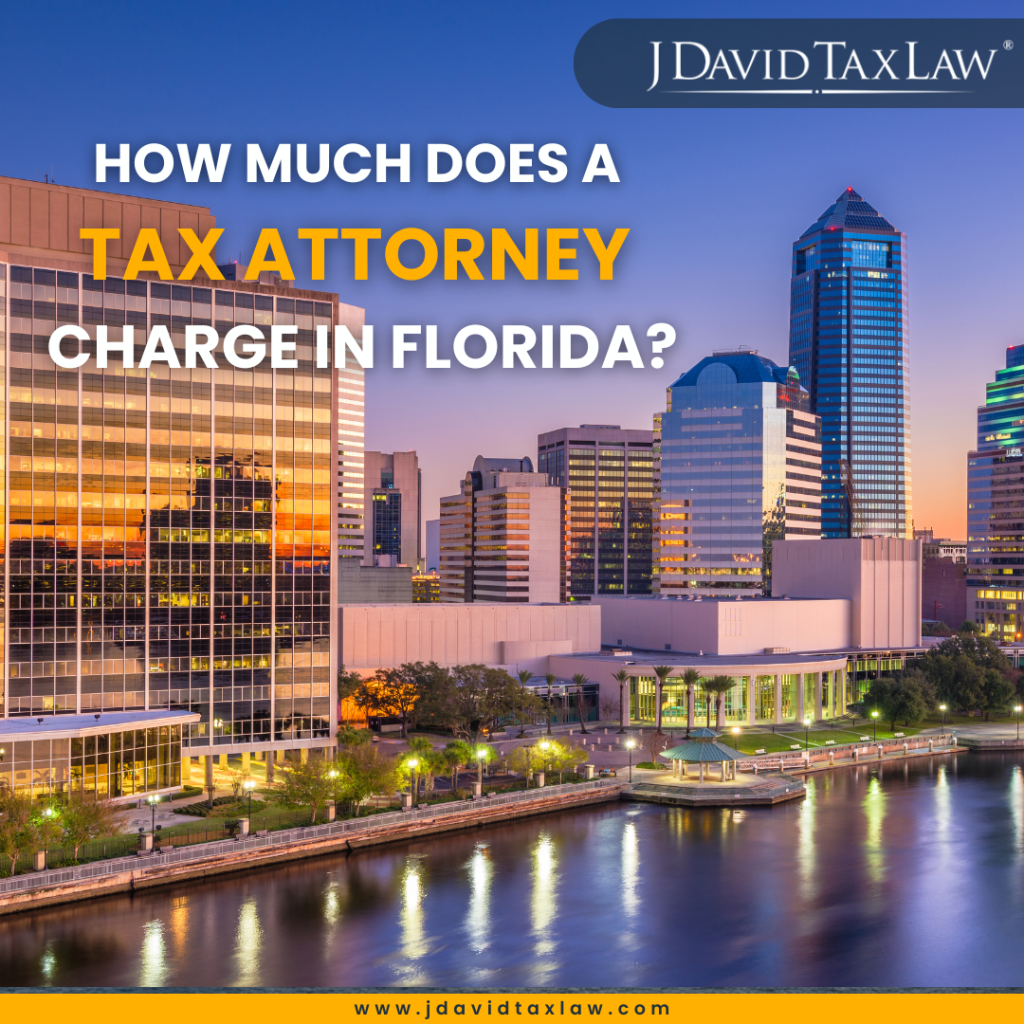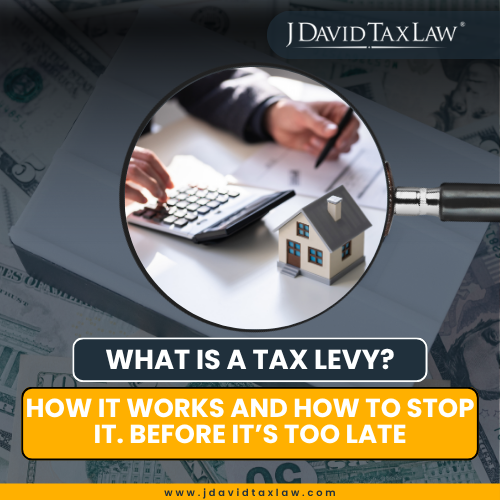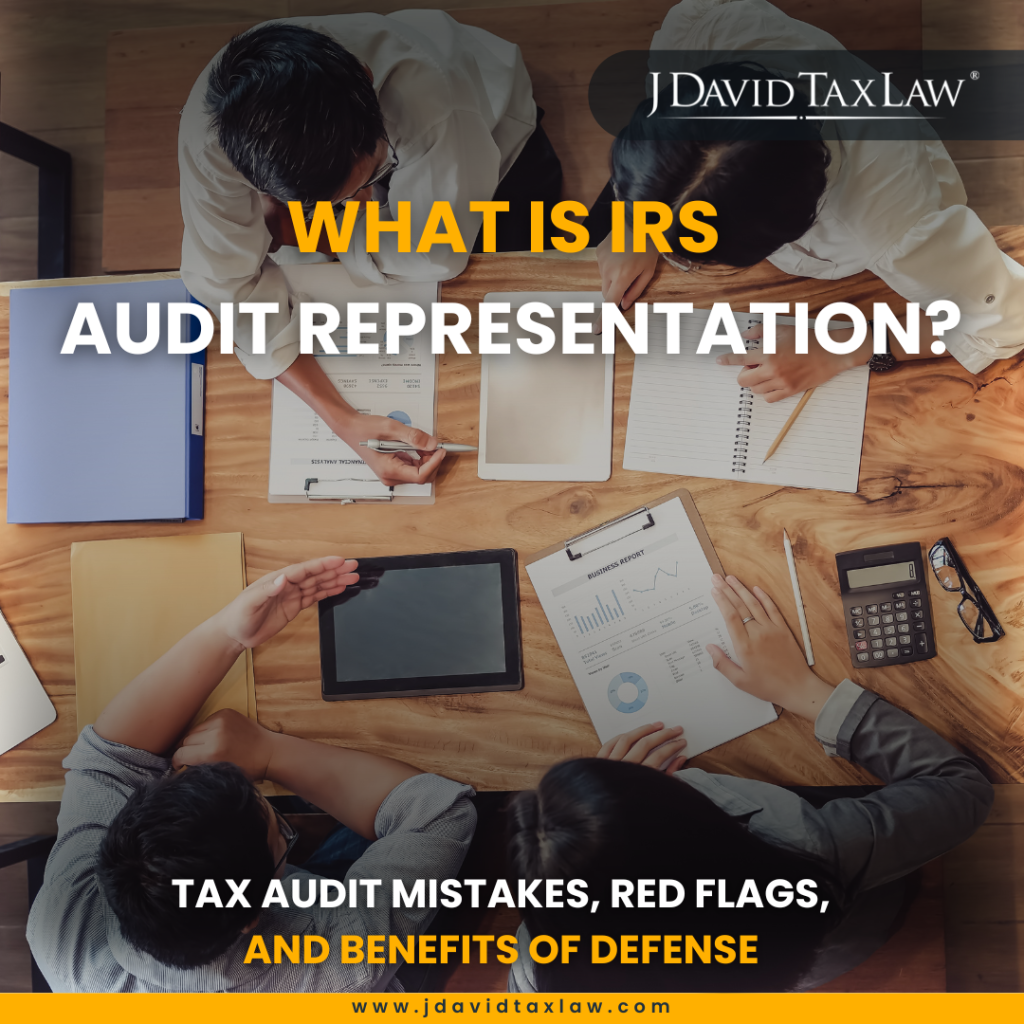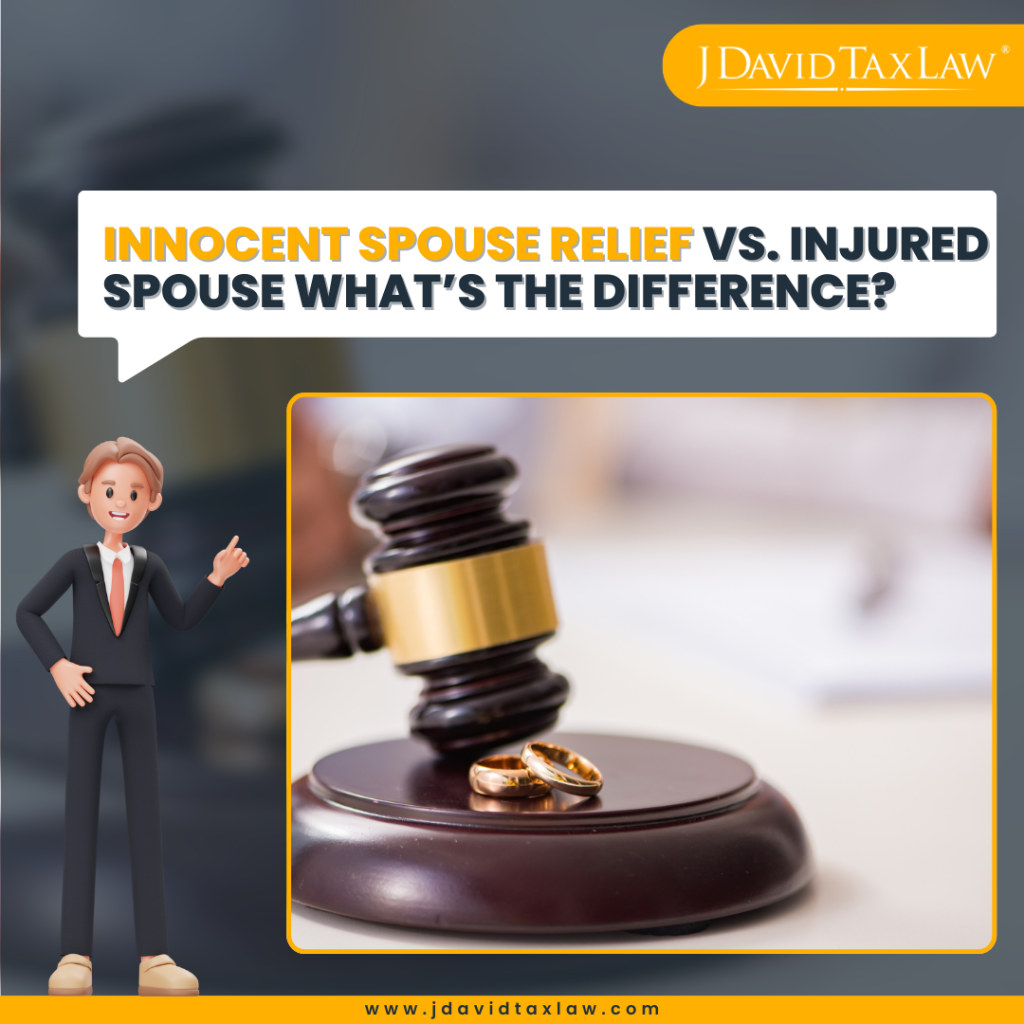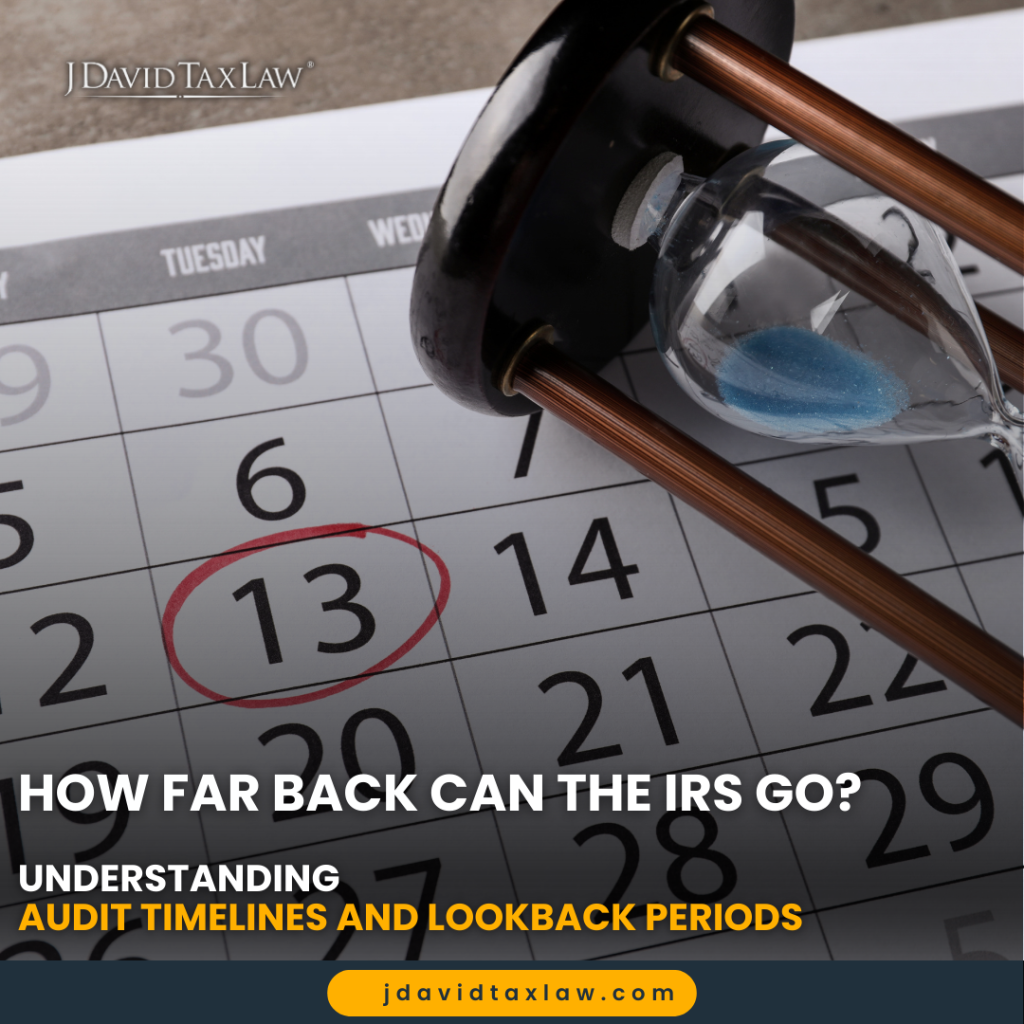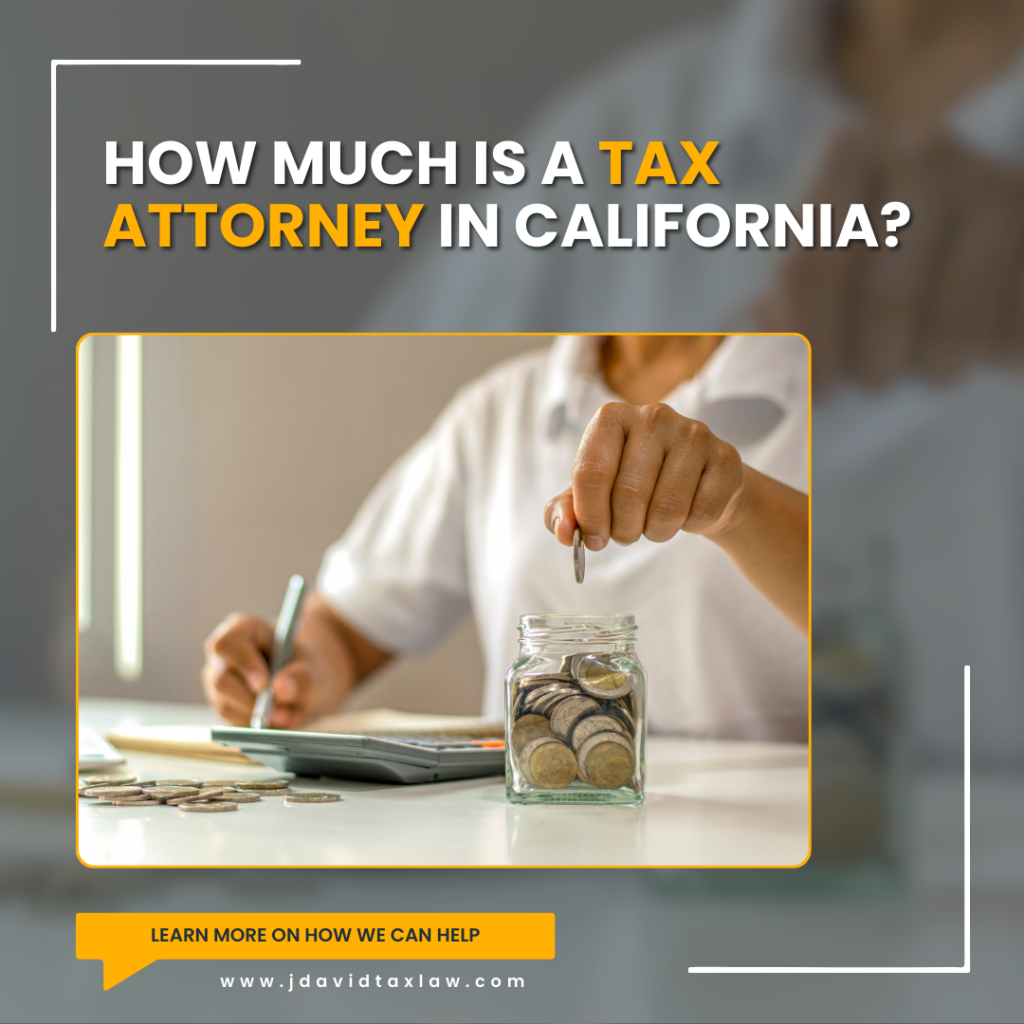When most people think about tax problems, one name dominates their worry: the IRS. But for thousands of Maryland taxpayers, the real trouble starts much closer to home — with state and local tax authorities like the Comptroller of Maryland and even the City of Baltimore. In 2025, Maryland’s tax enforcement agencies have become more aggressive due to a projected $6 billion budget deficit by 2030, prompting intensified collection efforts.
Most tax attorneys and national “relief” firms don’t understand how Maryland works. They apply IRS processes to state-level cases and clients pay the price through missed deadlines, denied relief, and escalated enforcement.
The best part is, there is a real path forward. It begins with knowing the difference between surface-level tax help and true legal resolution. At J. David Tax Law, our sole focus is resolving serious IRS and state tax debt—not preparing returns or offering general tax advice. We have helped individuals and business owners throughout Maryland, including in Baltimore City and Baltimore County, find real relief when other firms gave up or got it wrong.
IRS vs. Maryland State Tax Enforcement
Unlike the IRS, which usually follows a long series of notices and appeal steps, Maryland agencies can take action quickly and with fewer warnings. That means things like wage garnishments or liens can happen before you even have a chance to fight back, unless you know exactly how to respond.
If you owe back taxes in Maryland, here are the key agencies you might hear from:
The Comptroller of Maryland – Oversees tax collections across the state
The Central Collection Unit (CCU) – Enforces unpaid debts, including income tax, and takes action like garnishing wages or freezing bank accounts. In 2022 alone, it recovered over $25 million from Maryland residents, often with little flexibility in appeals.
The Maryland Office of Administrative Hearings (OAH) – Handles appeals and legal disputes for tax-related matters
Baltimore City Department of Finance – Enforces city-level taxes such as business personal property and local licensing requirements
Each of these agencies can act separately from the IRS, and they often do. Many Maryland taxpayers are surprised to learn that they can have no federal tax issues at all and still face harsh enforcement from state or city offices. This is why it’s so important to treat state tax problems seriously from the start. A federal approach alone won’t work. You need someone who knows Maryland’s system inside and out, and who can move just as fast as the agencies trying to collect.
The Hidden Legal Risks of Maryland State Tax Debt
Many Maryland taxpayers assume that if they can handle their IRS problem, they can handle their state tax issue the same way. Unfortunately, that assumption often leads to bigger problems.
Here’s what can happen:
Wage garnishment without a court order
Bank account seizures executed automatically by the state
Tax liens placed on your property, often impacting refinancing options
Business license suspension, which can force small businesses to shut down overnight
Referral to the Maryland Office of Administrative Hearings for disputed assessments
In serious cases, involvement from the Maryland Attorney General’s Office, including the risk of civil or criminal charges for tax fraud, unfiled returns, or unpaid sales tax
And if you live or operate a business in Baltimore City, you may face local penalties too, including fines, interest, and even business license revocation through the Baltimore City Department of Finance. These aren’t empty threats. Maryland’s tax enforcement system is designed to collect efficiently and it rarely slows down to accommodate misunderstandings or missed paperwork.
The biggest danger? Thinking about a generic tax firm or even your CPA can fix it. They often don’t understand how to appeal these actions, what paperwork the state actually requires, or how to negotiate when standard programs don’t apply. At J. David Tax Law, our Maryland tax attorneys understand the state’s system and we know how to intervene when others cannot. And because our office is based in Downtown Baltimore, we’re not just familiar with Maryland’s tax laws, we live where they’re enforced. Call us at (888) 342-9436 today and speak directly with an experienced MD tax lawyer who understands how Maryland enforcement works.
What About Baltimore City? Local Tax Enforcement Also Matters
When tax trouble strikes in Baltimore, it may not come from the IRS or even the state. Baltimore City has its own powerful enforcement system, and for many residents and business owners, that’s where the pressure starts.
Who’s In Charge?
The Baltimore City Department of Finance is responsible for managing and collecting local taxes, including:
Real Property Taxes – Levied annually on residential and commercial property
Business Personal Property Taxes – Applied to equipment, furniture, and other assets used in business
Licensing Fees – Required for operating businesses, rental properties, food services, and more
These departments operate independently from the state and federal government, and they have their own methods of enforcement. Learn how our Baltimore tax attorneys can help you resolve IRS or Maryland state tax debt & stop aggressive enforcement, visit: https://www.jdavidtaxlaw.com/baltimore-tax-attorney/
What Can They Do?
Baltimore City agencies are not just billing offices, they are authorized to take legal action to collect unpaid taxes. Here’s what that can look like:
🔹 Tax Liens
If you fall behind on real property taxes, the city can file a lien against your property. This can:
Block refinancing or selling your home
Lead to tax sale proceedings
🔹 Tax Sales
Unpaid property tax bills can result in your home or building being auctioned to third-party investors through the city’s annual tax sale. Baltimore is one of the most active cities in the country when it comes to property tax sales.
🔹 Business License Revocations
Businesses operating in the city must stay current on:
Local licensing fees
Personal property tax filings
Gross receipts (in some categories)
Unpaid taxes or failure to file can result in:
Revocation of your business license
Inability to renew permits
Shutdown orders from city departments
🔹 Baltimore City Circuit Court
When cases escalate, the city may pursue collection through the Baltimore City Circuit Court. This includes:
Lawsuits for unpaid taxes
Judgments to enforce collection
Legal costs and interest added to the tax debt
How It Overlaps with State and IRS Problems
What makes Baltimore City enforcement especially difficult is that it often overlaps with state-level enforcement by the Comptroller of Maryland and federal enforcement by the IRS. For example:
A lien from Baltimore City can interfere with an Offer in Compromise you’ve filed with the IRS.
A revoked business license from the city may affect your ability to enter into a payment plan with the state.
You might resolve your IRS debt—only to find that you’re still facing a tax sale on your Baltimore property.
How J. David Tax Law Helps
While we do not represent clients in standalone property tax or licensing disputes, our role is critical when city issues interfere with broader IRS or state tax cases.
Why Other National Firms Often Fail at State and Local Cases
When tax trouble strikes, many people search online and land with a big-name national tax relief company. These firms often promise fast results, easy solutions, and broad coverage across all 50 states. But when the problem involves state or local enforcement, especially in places like Maryland or Baltimore City, those promises tend to fall apart.
Here’s why:
One-Size-Fits-All Doesn’t Work for State Cases
National tax firms are usually built around the IRS. Their systems, their forms, even their legal teams are focused on federal tax debt. They may know how to fill out an Offer in Compromise—but they often have no idea how to handle a Maryland Central Collection Unit wage garnishment or a Baltimore City tax lien that threatens your business license.
Every state has its own rules. Maryland’s appeals process, deadlines, and enforcement practices are not the same as what the IRS requires. If your representative doesn’t understand the nuances, you could miss relief options or worsen your situation without realizing it.
They Don’t Know the State’s System—Or Who to Call
In Maryland, sometimes resolving a case means knowing which division to contact, which form to file, or how to escalate a waiver request after multiple denials. That comes from experience, not from a script.
Our Maryland tax lawyers have worked with the Comptroller of Maryland, the Central Collection Unit, and even coordinated complex cases involving the Baltimore City Department of Finance. We know how to reach the right person, not just send another letter into a black hole.
When You Need Results, Not Promises
Too often, clients come to us after working with a national firm that simply stopped answering the phone or submitted the wrong paperwork. By the time our tax attorneys in Maryland get involved, the damage is already happening, wages are being garnished, liens are recorded, and license renewals are blocked.
That’s why Maryland residents and business owners trust J. David Tax Law. We don’t just check boxes, we solve the problem. We understand the systems in place here in Maryland. We know how they interact with IRS collections. And most importantly, we know how to protect you from both.
A Leadership Team Built on Expertise and Recognition
Our firm is built around attorney-driven strategy, not call centers or templated forms. Every client works with a licensed tax attorney, not a salesperson or third-party middleman. From day one, you get:
Direct legal analysis of your situation
A clear plan of action grounded in state and federal law
Transparent communication and real legal advocacy
Jonathan David Sooriash, our founder and managing partner, leads the firm with over a decade of experience in tax compliance and audit defense. He holds an AV Preeminent rating (highest possible) from Martindale-Hubbell, an “Excellent” rating on Avvo, and is Lead Counsel Verified in Tax Law. He’s represented clients across the country, is fluent in English and Spanish, and knows exactly how to navigate both IRS and state tax enforcement systems to get results.
J. David Tax Law is consistently recognized for its impact and client service, with over 1000 five-star reviews and a reputation for resolving the toughest cases. Clients facing wage garnishments choose us because we act fast. In many cases, our tax attorneys are able to secure a wage garnishment release within 48 hours, helping clients protect their income and regain control.
Key Tax Agencies We Interact With
Tax debt resolution isn’t just about knowing the law, it’s about knowing who is behind the notices, what their next move will be, and how to intervene before damage is done.
Whether it’s a bank levy from Maryland’s CCU, a denied audit appeal from the IRS, or a city tax lien that threatens your license, each agency has its own rules, deadlines, and decision-makers. Our tax lawyers work directly with these agencies every day, and we know how to get cases moving, escalated, or shut down when necessary.
Here’s a breakdown of the agencies we interact with across federal, state, and city jurisdictions:
Agency | Jurisdiction | What They Do |
Internal Revenue Service (IRS) | Federal | Handles tax collections, audits, penalties, and enforcement across the U.S. |
U.S. Department of the Treasury | Federal | Oversees IRS operations and national tax enforcement policy. |
U.S. Tax Court | Federal | Hears disputes involving IRS tax assessments and appeals. |
Taxpayer Advocate Service (TAS) | Federal | Assists taxpayers facing IRS delays or unfair treatment. |
Comptroller of Maryland | State | Manages Maryland income and business tax collections, audits, and enforcement. |
Central Collection Unit (CCU) | State | Executes aggressive Maryland enforcement actions—wage garnishments, bank levies, and more. |
Office of Administrative Hearings (OAH) | State | Hears appeals related to Maryland tax assessments and disputes. |
Maryland SDAT | State | Handles business personal property tax compliance and registration issues. |
Baltimore City Dept. of Finance | Local (City) | Collects city-level taxes, including property and business-related fees; can initiate tax liens and sales. |
Baltimore City Circuit Court | Local (City) | Enforces legal actions related to tax liens, judgments, and property disputes. |
Conclusion
If you’ve read this far, you already understand something most people miss: state and local tax enforcement can be just as aggressive as the IRS, and sometimes even faster. In Maryland, the Comptroller and CCU don’t wait. They garnish wages, freeze accounts, and threaten licenses, often with little warning and even less flexibility.
Most national firms are built for IRS cases. Most local accountants aren’t equipped to deal with legal enforcement. We’re different.
At J. David Tax Law, we focus exclusively on resolving IRS and state tax debt—not tax prep, not planning, not vague promises. Our attorneys know the agencies, the escalation paths, the strategies that work and the ones that don’t. We’ve helped clients across Baltimore, all of Maryland, and beyond stop enforcement, reduce balances, and finally move forward.
The IRS is Forgiving Millions Each Day. You Could Be Next.
Frequently Asked Questions
What happens if I owe Maryland state taxes?
If you owe Maryland state taxes, the Comptroller of Maryland can initiate enforcement actions including wage garnishment, bank account levies, and tax liens. Unpaid balances are often transferred to the Central Collection Unit (CCU), which operates aggressively and with fewer appeal protections than the IRS. Ignoring notices can result in long-term damage to your credit, business licenses, and assets. J. David Tax Law helps Maryland residents resolve back taxes before enforcement escalates.
What is the tax hardship program in Maryland?
Maryland offers an Offer in Compromise (OIC) program through the Comptroller of Maryland, which may allow eligible taxpayers to settle their tax debt for less than they owe. This applies in cases where full payment would cause significant financial hardship or where the liability is legally doubtful. Approval depends on income, expenses, and asset equity—and the process is often complex. Our lawyers help Maryland taxpayers prepare and submit hardship-based OIC requests with strong legal backing.
Who do I call if I owe MD state taxes?
If you owe Maryland state taxes, contact the Comptroller of Maryland’s Compliance Division or the Central Collection Unit (CCU). However, state agents represent the government’s interest, not yours. For legal guidance and protection, contact J. David Tax Law to speak with a tax attorney experienced in resolving Maryland state tax debt. We handle communication, negotiation, and enforcement defense on your behalf.
Can you get tax debt forgiven in Maryland?
Maryland may agree to reduce or settle tax debt under certain conditions, but it rarely offers full forgiveness without legal or financial justification. Forgiveness options vary depending on whether your case involves personal income tax, business tax, or withholding issues. Submitting the right documentation and knowing the appeals process is key.









